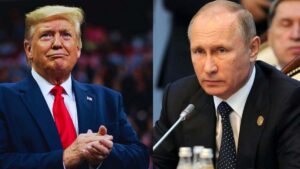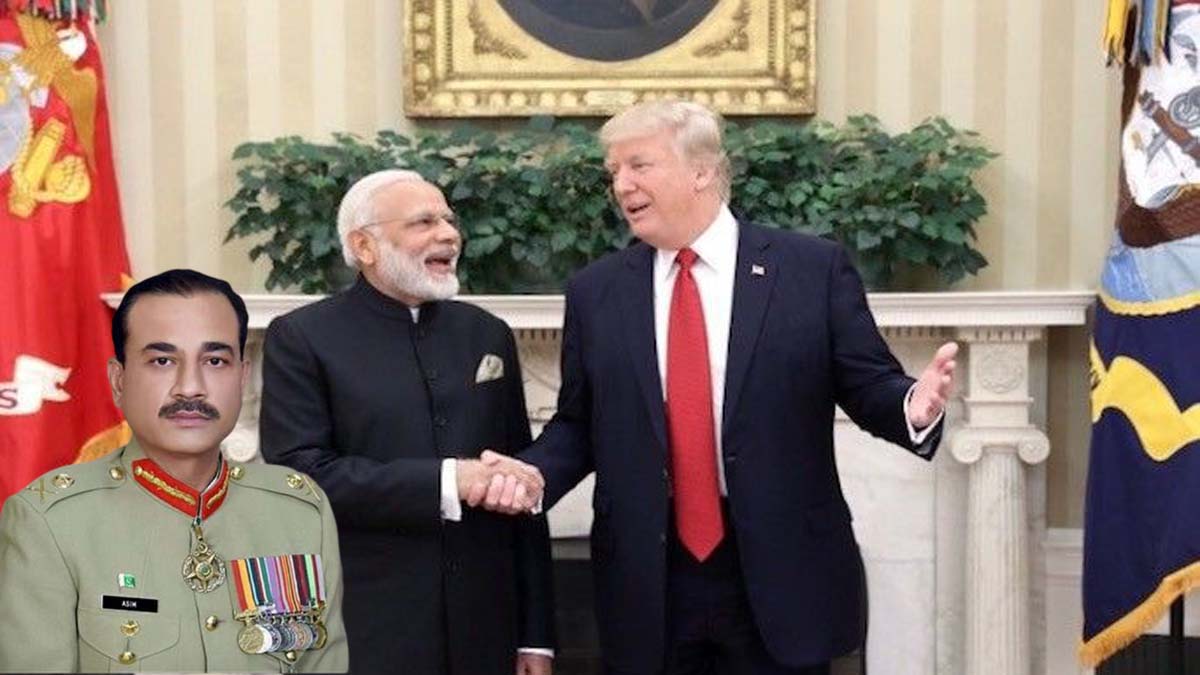A shocking incident has come to light recently: Former US President and currently re-elected Donald Trump has imposed an additional tariff of 25% on many products imported from India. This, combined with the 25% tariff already imposed, has taken the total tariff to 50%. This step has been taken at a time when India is importing cheap oil from Russia and strengthening its economic position in the world. Meanwhile, the visit of Pakistan Army Chief Field Marshal Asim Munir to the US, and his warm welcome by the US administration, has emerged as an important signal in the equations of global politics.
Pakistan-US closeness: What is the message?
Pakistani Army Chief Asim Munir visited the US in June 2025, in which he also had a two-hour long meeting with Trump. Now in August, he is going to visit the US again, where he will attend the farewell ceremony of US-CENTCOM’s retiring General Michael Kurilla. General Kurila has recently described Pakistan as a reliable partner against organizations like ISIS-K. This statement is a clear indication of strengthening US-Pakistan relations.
One message is clear from this: America is looking at Pakistan as a strategic ally again, especially in matters related to Afghanistan, Central Asia and terrorism
Impact of tariff on India
The additional tariff imposed on India by Donald Trump can have a profound impact on India-US trade relations. This decision has come at a time when India has become a major exporter of pharmaceuticals, textiles, steel and technology products to the US. Now after this tariff:
- The competitiveness of Indian exporters will decrease: Indian goods will become expensive in the US market, which may lead to a decline in their sales.
- Bangladesh and Pakistan may get a chance: These countries can now sell their products in the US with lower tariffs, which may reduce India’s share
- Political message: This tariff is not just a trade but also a political signal. America wants to warn India that it will have to pay a price for its growing closeness to Russia and independent foreign policy.
Diplomatic balance: India’s problem
India is trying to follow its independent policy in a multipolar world. On the one hand, it is a part of QUAD with America, Japan, Australia, on the other hand it is also maintaining strategic relations with Russia and Iran.
Initiatives like buying cheap oil from Russia and transactions in rupees instead of dollars are making America uncomfortable. Trump’s recent tariff policy reflects this. In such a situation, India needs to better balance its diplomatic balance.
Why is Pakistan getting importance?
Pakistan has been struggling with economic crisis for the last few years. IMF’s bailout package, domestic terrorism and political instability had worsened its condition. But from a US strategic perspective, it is still an important pawn:
- Control and intelligence along the Afghan border
- Operational support against ISIS-K
- Diplomatic strategy to counter China’s CPEC project
For all these reasons, the US needs Pakistan. That is why Trump’s secret talks with Asim Munir and talks of military-level cooperation are now coming out in the open.
India’s response: Restraint but strictness
The Indian government has responded to Trump’s tariff decision by saying that it will “not make any kind of compromise in the national interest”. India has also planned to get this tariff reviewed on the WTO platform. At the same time, India can further accelerate the strategy of domestic production and self-reliant India.
India is currently a nation that is balancing both the US and Russia. But this balance may become more challenging in the times to come, especially when the competition between the US and China and the polarized politics of the Western world become more intense.
Conclusion
The recent US policy—bringing Pakistan closer on the one hand and exerting trade pressure on India on the other—points to the changing diplomatic direction of the world. India will now have to be more cautious and protect its interests on the global stage. It is important that India strengthens its role in regional and global politics while maintaining a balance with its traditional allies.
The current developments make it clear that not just economic power or military strength, but strategic acumen and foresight is the real strength of a nation in today’s times.










